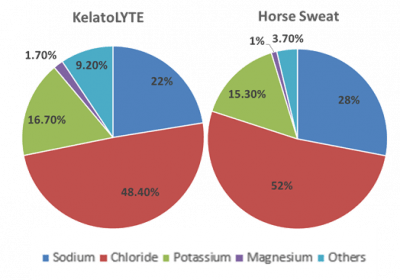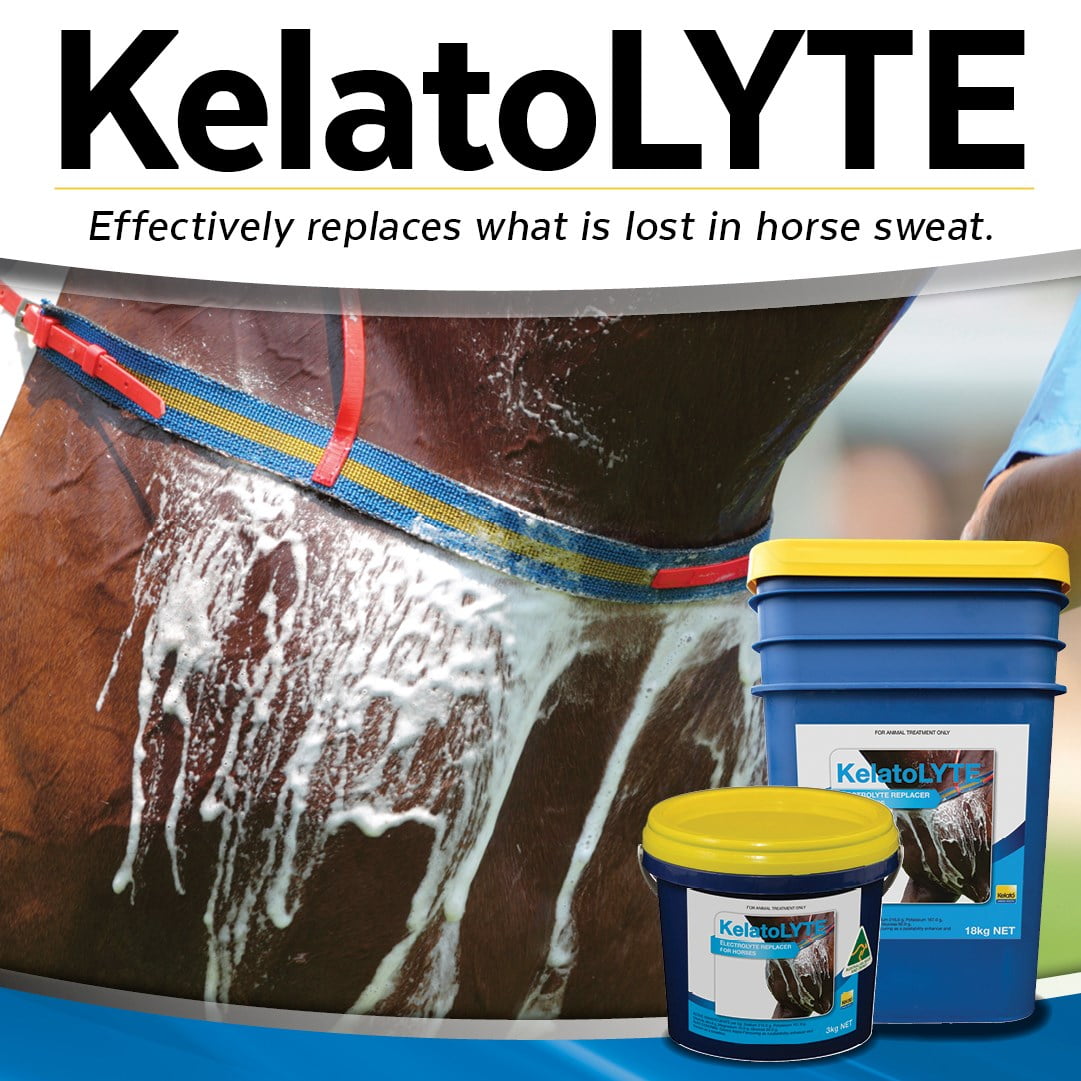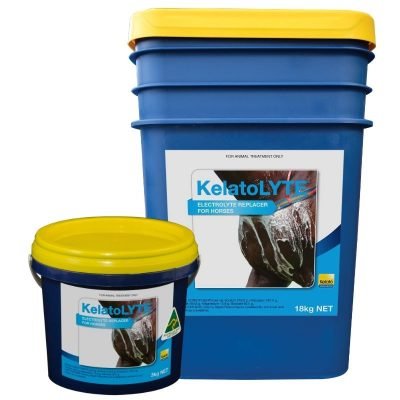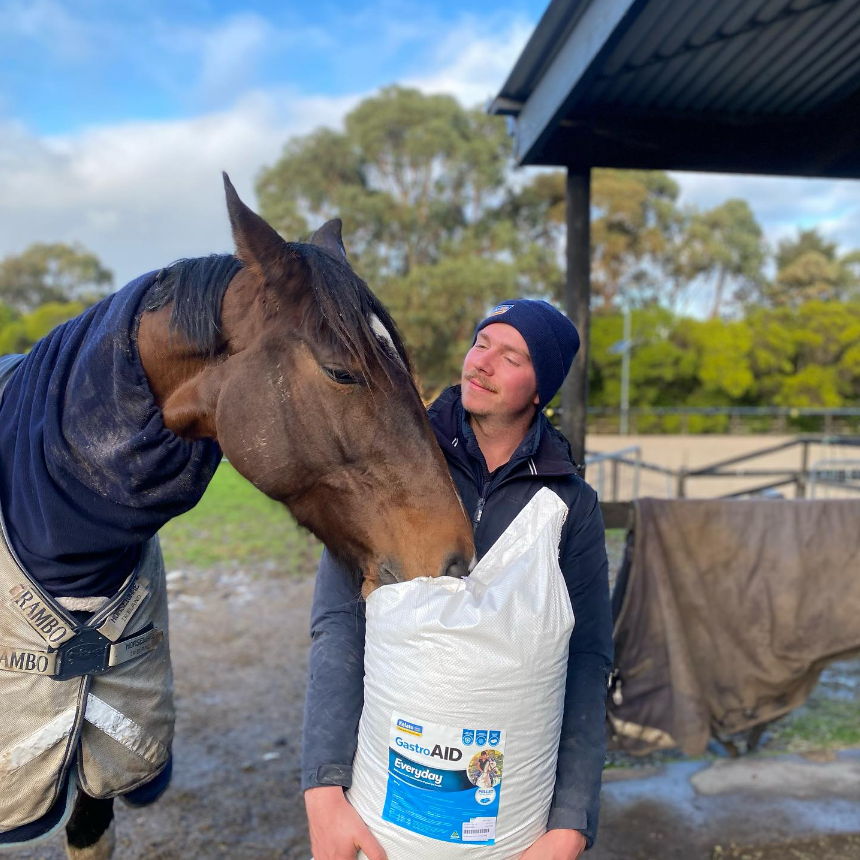How to shop smart to effectively replace what is lost in sweat for your horse, all year round!
There are many commercial electrolyte replacers available on the market. Electrolyte supplements are designed to replenish sodium, chloride, potassium and magnesium lost in sweat as a result of exercise. So, how do you know which product to select?
Most electrolyte replacers contain filler in the form of glucose to improve palatability (electrolytes are salty!) or other bells and whistles such as B vitamins and sodium bicarbonate. The problem is, too much filler can compromise the electrolyte composition of the product. When shopping for supplements, it’s important to have a look at the label and select products that contain less than 10% filler.
What are electrolytes?
Every horse owner needs to understand the importance of electrolytes in their horse’s nutritional program. But what do electrolytes actually do? Also known as “body salts”, electrolytes play an important role in maintaining osmotic pressure, fluid balance, acid-base regulation, and nerve and muscle activity.
During exercise, sodium, chloride and potassium are lost in large quantities, as well as magnesium and calcium to a lesser degree. Loss of these electrolytes can lead to fatigue, muscle weakness, and a decrease in the thirst response leading to dehydration.
Depending on exercise intensity, horses rely approximately 70 – 85% on sweat and 15 – 25% on respiratory losses to regulate their temperature.
Sweat Loss
Sweat loss is determined by two factors: climatic conditions and the duration and intensity of exercise. Evaporative heat loss through sweat is most effective when the air is dry. When humidity increases, the effectiveness of this cooling mechanism decreases. This is because the surrounding air is saturated with water and sweat from the horse’s body can’t evaporate.
Horses exercising at low intensity in cool, moderate conditions (15 – 20°C) will lose 5 – 7L of sweat per hour. Horses working in hot, humid conditions can produce up to 30L of sweat per hour. Horse sweat is “hypertonic”, which means a higher concentration of electrolytes exists in sweat than body fluids. For this reason, horses lose large quantities of electrolytes when they sweat.
Did you know? – Latherin is a surfactant (detergent-like) protein found in horse sweat, which causes it to appear lathery or foamy. Its function is to aid rapid translocation of sweat water from the skin to the surface of the coat to aid evaporative cooling.
Electrolyte Supplementation
The amount of electrolytes you need to provide will depend on the rest of the horse’s diet. Electrolytes are present in pasture and hay in wildly varying concentrations. Straight grains provide only very small amounts of electrolytes. Commercial feeds have electrolytes added to the mix, but you shouldn’t rely on a pre-mix feed to meet your horse’s requirements. While a horse’s hard feed intake will generally remain the same, their electrolyte needs will vary daily depending on the intensity and duration of work and weather conditions. For this reason, it is best to provide an electrolyte replacer according to sweat loss.
A well-formulated supplement will provide enough electrolytes in a 60g dose to replace what is lost in 5L of sweat. KelatoLYTE is a scientifically formulated electrolyte supplement that mimics the composition of horse sweat, so you know you are effectively replacing what is lost. Don’t forget! Your horse MUST have access to fresh, clean water when supplementing with electrolytes.

KelatoLYTE effectively replaces what is lost in sweat, no matter what the climate!
- Scientifically formulated to mimic the composition of horse sweat.
- Effectively replaces what is lost in horse sweat.
- Contains 88% electrolytes and NO bicarb!
- Facilitates fast rehydration and encourages drinking.
- Can be used as a daily supplement, an isotonic drench (under veterinary supervision) or an electrolyte paste
If you would like more information, please get in touch on 1800 KELATO or email technical@kelato.com.au.





